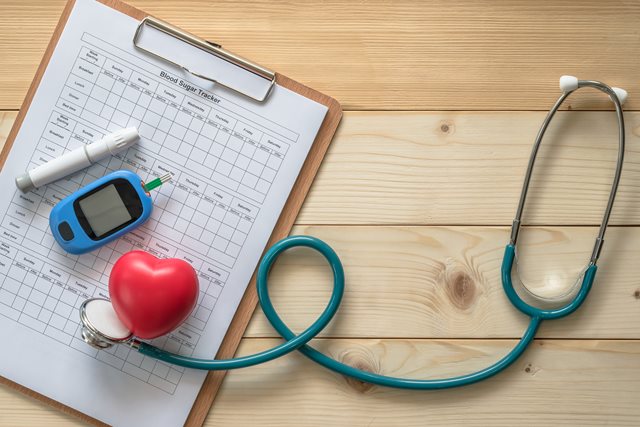Who:
Dr. Dean Eurich, professor, School of Public Health, University of Alberta
Research highlights/discoveries:
• Looking at inequities in diabetes care in Indigenous communities and developing ways to create better diabetes management
Dr. Dean Eurich at a glance:
• Received End Diabetes Award, Diabetes Canada (2022)
• Elected Fellow, Royal Society of Canada (2018)
• Awarded Instructor of the Year, small and large classes (2017 & 2015)
• Received his PhD from the School of Public Health, University of Alberta (2007)
• Earned his Bachelor of Science in Pharmacy, University of Saskatchewan (1998)
How did you get involved in diabetes research?
I started my career as a pharmacist working in hospital, and even then—25 years ago—I was seeing more and more people coming in with diabetes-related issues. I was later involved in clinical trials around cardiovascular disease, and many of the participants had diabetes as well as heart disease. So, when I had an opportunity to join a program called the Alliance for Health Outcomes Research in Diabetes in 2001, I jumped at the chance to be more involved with diabetes.
When did you start focusing on First Nations people with diabetes?
About 10 years ago, I was approached by one of the big First Nations groups in Alberta to look at chronic diseases and medication use overall in their community. They were shocked by the rates of diabetes my colleague and I uncovered, and they asked us to come up with a way to tackle this issue. Since then, I’ve worked with 25 different First Nations communities in Alberta to help them understand what this data means, and find solutions for the prevention of diabetes in their community as well as provide better care for people with the condition.
My team and I had been running a successful remote program providing diabetes care to Indigenous patients, in partnership with nurses in those communities, until COVID-19 shut things down. That meant clients were no longer coming into health centres, nurses could no longer work with them in the same way, and diabetes care was basically falling off a cliff. We just didn’t know what effect this was having on patients, and to what extent. And so our latest research, which is supported by Diabetes Canada, set out to answer those questions.
What do you hope this research will accomplish?
Not only do we want to document the extent of the disruption of care caused by COVID-19, but we hope to determine what specific areas these communities need to focus on to get their clients with diabetes back on track.
Our research shows us that First Nations clients with type 2 diabetes were using the health system much more frequently than the general population in Canada right after the pandemic, but not in an ideal way. They were going to emergency rooms and experiencing hospitalization 25 per cent more than the general public.
The second part of our research involves interviewing patients in their own tongue to get their first-hand perspective on how COVID-19 impacted them, and to find out what resources they need to get back on track. These interviews are already underway in a large First Nations community in Alberta, and we will use our learnings to branch off to more communities in the province that have agreed to be involved.
What are your next steps?
My team and I will do a research report but, more importantly, we will work with our First Nation partners to come up with recommendations that the healthcare centres in these communities can hopefully act on. This can help our partners start a dialogue about what support they’ll need from provincial or federal governments to get resources in place.
Why is focusing on First Nations communities so important to you?
I know there are problems with lack of housing, healthy foods, education and income—and we know all those things can lead to obesity and other chronic conditions like diabetes. As a professor in public health, I have a particular interest in the preventative side of diabetes and in providing better care, so it’s an area I gravitate to. The ultimate goal for me is to close the inequity gaps in health care across Canada and improve diabetes outcomes for Indigenous peoples.
The last word
“Dr. Eurich’s research helps to provide culturally specific recommendations to manage the high rates of diabetes and related complications in First Nation communities,” says Laura Syron, president and CEO of Diabetes Canada. “For Diabetes Canada, it’s important to invest in research like this project, to create a deeper understanding of the relationship between the history of colonization and current health inequities experienced by Indigenous peoples.”
Did you know?
Indigenous peoples tend to be diagnosed with diabetes at a younger age than other people in Canada, have more severe symptoms when diagnosed, face higher rates of complications and experience poorer treatment outcomes. Learn more at Indigenous Communities and Diabetes. Help us fund research like that of Dr. Eurich which has the power to change lives. Donate now. #LetsEndDiabetes
Related Content

Research
Read about the research projects and awards funded by Diabetes Canada
About research About Research
Tools and resources
Take charge of your health with tools and resources from Diabetes Canada.
Get started About Tools and resources
Recently diagnosed?
What you need to know about managing diabetes.
Read more About Recently diagnosed?